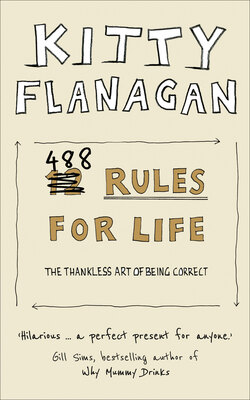Читать книгу 488 Rules for Life - Kitty Flanagan - Страница 28
KIDS TODAY
Оглавление87
Curb your use of the word ‘like’
Like is many things; however, it is not an adverb and should not be used as such:
And so I was, like, I cannot believe you are not going to, like, eat the dessert I made. And she was, like, but it’s banoffee pie, which is, like, disgusting. It’s, like, not even pie, it’s banana-flavoured mucus on, like, a cheesecake base. And I was, like, whatever.
As you can tell from the above, I don’t particularly like banoffee pie.
88
Assume that people know what you mean
Unless you are explaining the solution to a quadratic equation, or you happen to speak in riddles worthy of a cryptic crossword, then it’s safe to assume that most people will be able to follow what you’re saying. So there’s really no need to keep checking in and saying ‘know what I mean?’ every couple of sentences.
89
Don’t use words you don’t need, like ‘literally’
Most of us don’t speak in metaphor and simile, we almost always speak literally, so there is rarely the need to qualify your sentence by adding the word ‘literally’. As in ‘Oh my god, she ate the whole piece of cake, like, literally the whole piece of cake.’
It would be highly unusual for someone to assume that ‘piece of cake’ meant something else in this instance so you can do away with the word ‘literally’.
However, if you were talking about your dog and how he chewed up one of your board games, then in that instance you might want to qualify your statement with a ‘literally’: ‘We were playing Yahtzee the other day and then Bongo came along and ate the whole box and dice, literally the whole box and dice.’
